ANALYSIS Christians look to the Bible for voting decision
by - 22nd June 2016
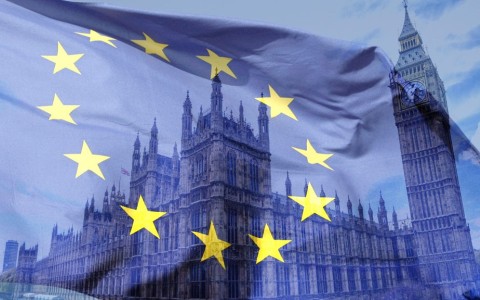
LAST week, the Archbishop of Canterbury finally revealed his voting intention in the EU referendum.
For several months, while urging us to have a ‘really visionary debate', he had studiously withheld his own opinion. However, writing in the Mail on Sunday on 12 June, he announced that he will ‘vote to remain’.
As a ‘remainer’, Justin Welby is in the minority among his fellow Anglicans and, indeed, among Christians in general. Recent surveys have shown that the majority of Christians, including Anglicans, lean towards leaving.
These surveys do not, however, tell us whether or not respondents make a conscious connection between their religion and their attitudes to the EU. Probably most do not.
But among those Christians who do, which includes the Archbishop, at least five ‘discourses’ can be identified, configured around ‘peace and reconciliation’, ‘Christian ethics’, ‘the inviolability of nationhood’, ‘Christian Britain’, and ‘biblical eschatology’.
1. Peace and reconciliation
In common with many pro-EU Christian commentators, the Archbishop nails his colours to the ‘peace and reconciliation’ mast. The ‘vision of the founders of the European Union was peace and reconciliation’, he writes, and ‘peace and reconciliation exist in Western Europe today’.
Welby’s counterpart in Wales, Archbishop Barry Morgan, shares this view. Less reticent than Welby, he declared his own pro-EU position back in March, urging voters not to ‘abandon the most successful project for peace, freedom and democracy the world has ever seen’.
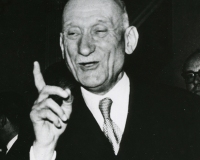 ‘Peace and reconciliation’ are not exclusively Christian ideas, but they are, of course, at the heart of the Christian faith, and, according to Welby, the EU’s founding ideals were ‘formed out of the Christian faith’.
‘Peace and reconciliation’ are not exclusively Christian ideas, but they are, of course, at the heart of the Christian faith, and, according to Welby, the EU’s founding ideals were ‘formed out of the Christian faith’.
In fact, Adenauer, de Gasperi and Schumann apparently shared a prayer retreat in a Benedictine monastery before signing the Treaty of Paris - the treaty that brought about the European Coal and Steel Community, with its aim of securing peace between France and Germany, and the precursor of today’s European Union.
2. Christian ethics
However, wrote Welby, the ‘EU is no longer what it used to be’ and ‘needs renewed vision, major reforms’. It has strayed a long way from its moral roots, from what Ben Ryan of Theos described as its ‘vision drawn from Christian and particularly Catholic political and social theory’, and especially from its core ideal of ‘solidarity’.
For Welby, Ryan and many others, the answer is for the EU to ‘rediscover its soul’, and for Britain to remain in and be a part of that process.
For others, however, the EU is beyond reform. Michael Schluter, founder of Jubilee Centre, who has a long career in applying biblical ethics to public policy issues, also holds the EU up to the mirror of Christian ethics and finds in wanting.
But, in contrast to Welby and Ryan, he concludes that Britain has very limited influence on EU policies, and ‘voting to remain will compromise important Christian political and economic values’. For Schluter, the EU is a ‘building which is on fire and in danger of collapsing’ and Britain is best off out.
3. The inviolability of nationhood
Many ‘Brexit Christians’ see the EU as an affront to the God-determined integrity of individual nations (Acts 17:26), and a ‘Babel project’.
Babel is a metaphor for imperialism. It was the Old Testament name for Babylon. In the book of Genesis the people build a city with a tower, ‘that reaches to the heavens, so that we may make a name for ourselves; otherwise we will be scattered over the face of the whole earth.’ God, concerned at the people’s hubris, destroys the tower and confuses the world’s language ‘so they would not understand each other.’
According to Schluter: ‘Biblical teaching portrays national identities and diversity as ordained by God’ and ‘not to be discarded lightly.’
‘Scripture implies that nation-states . . . furnish the structures necessary for human flourishing and deserve our loyalty’, wrote Nigel Biggar, Regius Professor of Moral and Pastoral Theology and Director of the McDonald Centre for Theology, Ethics and Public Life at the University of Oxford.
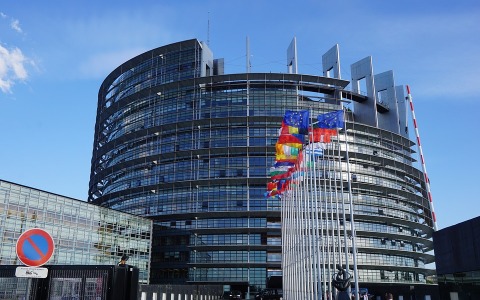
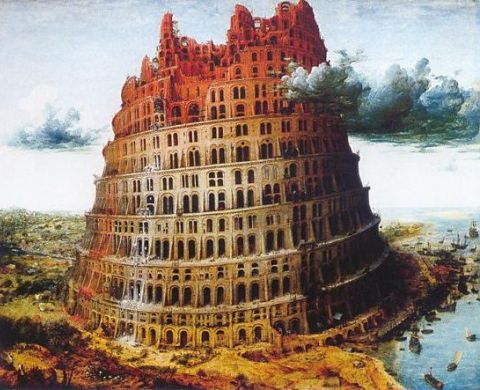
As Christians for Britain co-founder, Adrian Hilton (a former education advisor to Michael Gove who tweets as Archbishop Cranmer @His_Grace), commented: ‘The story of the Tower of Babel (Genesis 11:1-9) is often adduced to support the divine institution of the nation state, by which understanding any man-made attempt to bring an end to the curse of linguistic and cultural pluralism is considered contrary to the purposes of God.’
4. ‘Christian Britain’
A common view among ‘Brexit Christians’, especially at popular level, is that not only Britain’s God-ordained nationhood, but also its distinctive Christian heritage are threatened by membership of an increasingly and aggressively secularist European Union.
According to Jonathan Chaplin, director of the Kirby Laing Institute for Christian Ethics, those holding this view represent an influential voice arguing that, ‘Britain’s “Judeo-Christian identity” should be protected against the encroachments of a corrosive, EU-sponsored process of secularization’.
The ‘Christian Britain’ narrative runs something like this. Britain is an ‘island apart’ - a unique nation with a unique history. This has given rise to distinctive ideas and institutions, which have spread across the world.
The bedrocks of any democratic society - representative government, the rule of law, and the freedom of the individual - can be traced back to pivotal points in British history, such as the Glorious Revolution and Magna Carta.
This is not in itself an exclusively Christian story. But, it is argued, the Bible and Christianity are the defining factors that shaped Britain’s uniqueness, and arguably ‘laid the foundations for liberal democracy in the West’.
But Britain could not have enjoyed this unique history nor made its contribution to the world had it not also preserved its national sovereignty.
In contrast to the nations of continental Europe, for almost a thousand years, Britain has been kept from ‘foreign domination’ and retained its borders and sovereignty against all-comers. But all that changed when Britain joined what became the EU.
This is why for Christians for Britain co-founder, Giles Fraser, ‘Brexit recycles the defiant spirit of the Reformation’. And why Peter Horrobin of Ellel Ministries (and originator of the most-used hymnbook in contemporary churches Mission Praise), invoking the biblical story of the essentially ‘good’ king Jehoshaphat’s disastrous alliance with the ‘bad’ king Ahab (2 Chronicles 17-20), concluded that ‘it is time for the UK to cut itself free from alliances which undermine our sovereignty and limit our capacity to make our own laws’.
Most who embrace this idea do, of course, recognize that Britain has itself cut loose from its Christian foundations (largely without any help from the EU), but believe that the best chance of regaining the freedom, democracy and accountability that arose from Britain’s Christian history and of reclaiming its Christian heritage, is to leave the EU.
5. Biblical eschatology
Finally, for some Christians, drawing especially on the prophecies of Daniel and the book of Revelation, the EU is the precursor of a ‘revived Roman empire’ that will emerge in the ‘last days’ and usher in the global reign of the Antichrist and the ‘Great Tribulation’, just before the return of Jesus Christ.
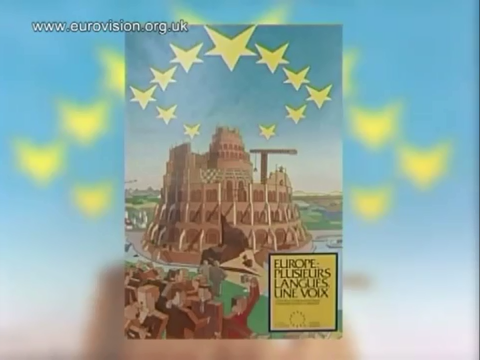
Of particular significance in shaping this understanding, evangelist David Hathaway argues, is the uncanny similarity between some of the imagery in the biblical books of Daniel and Revelation, and certain symbols adopted by the EU and other European institutions.
And it is certainly the case that the European Parliament building in Strasbourg, completed in 2000 at a staggering cost of £8billion, bears an uncanny resemblance to Bruegel’s painting of the unfinished Tower of Babel. The original slogan for a Council of Europe poster -advertising the project - which Christians protested against - was ‘Many tongues one voice’, beneath inverted stars, inverting the judgement of God.
As we approach tomorrow’s Referendum, despite their differences of opinion, Christians would nevertheless share the Archbishop of Canterbury’s conclusion that after all have voted according to their consciences, ‘we must come together as one people to make the solution we choose work well’.
